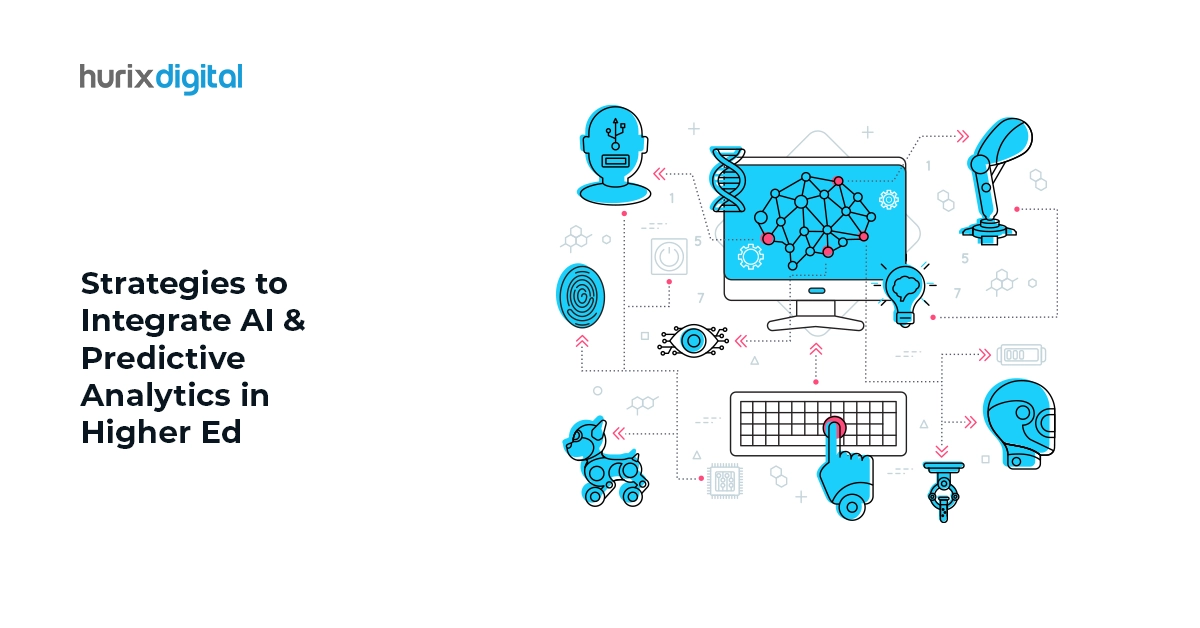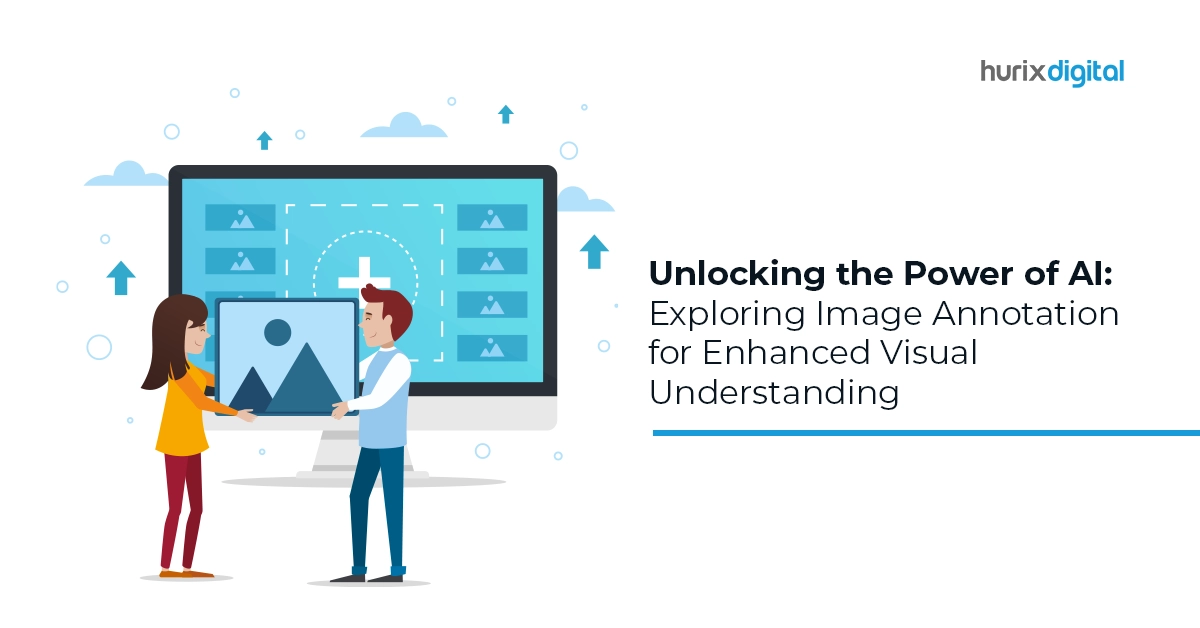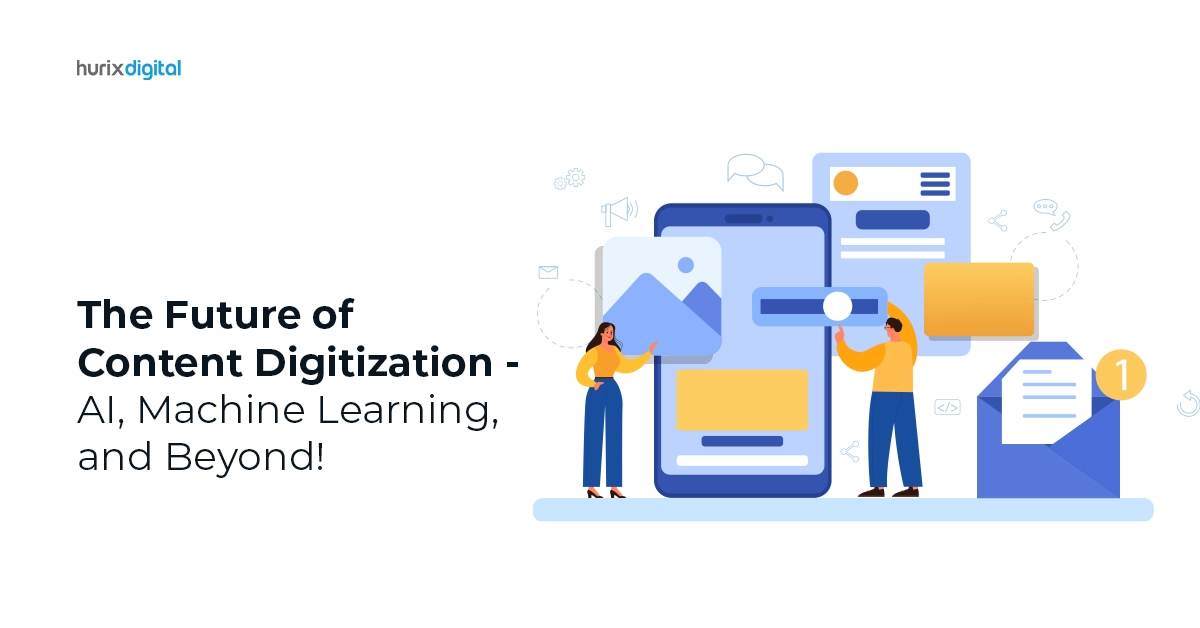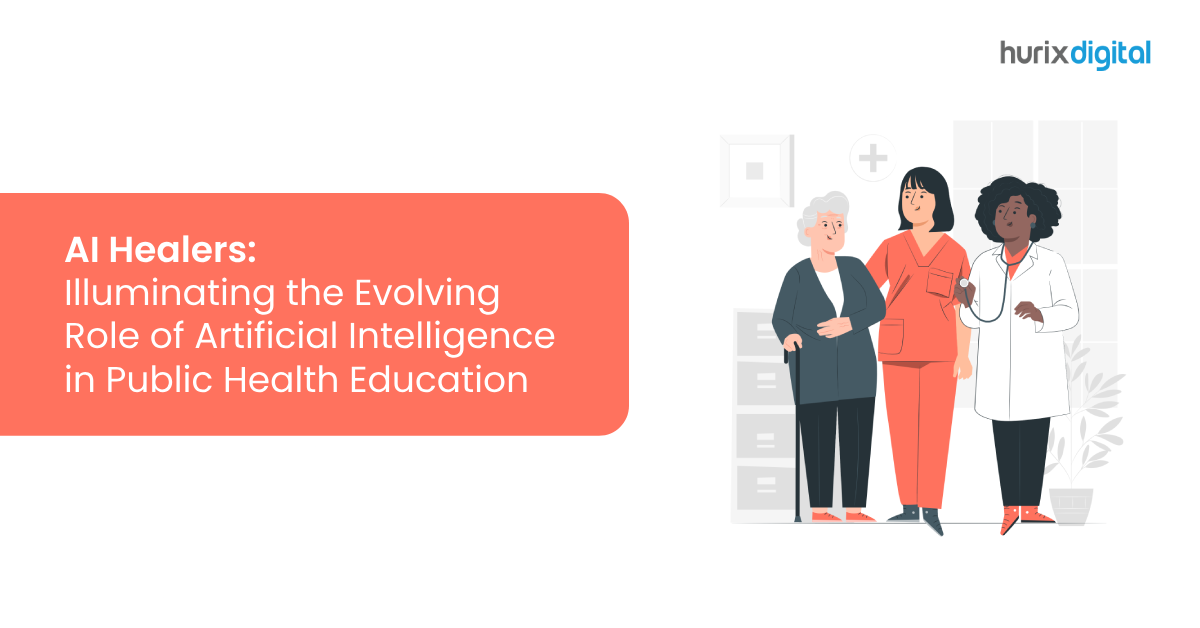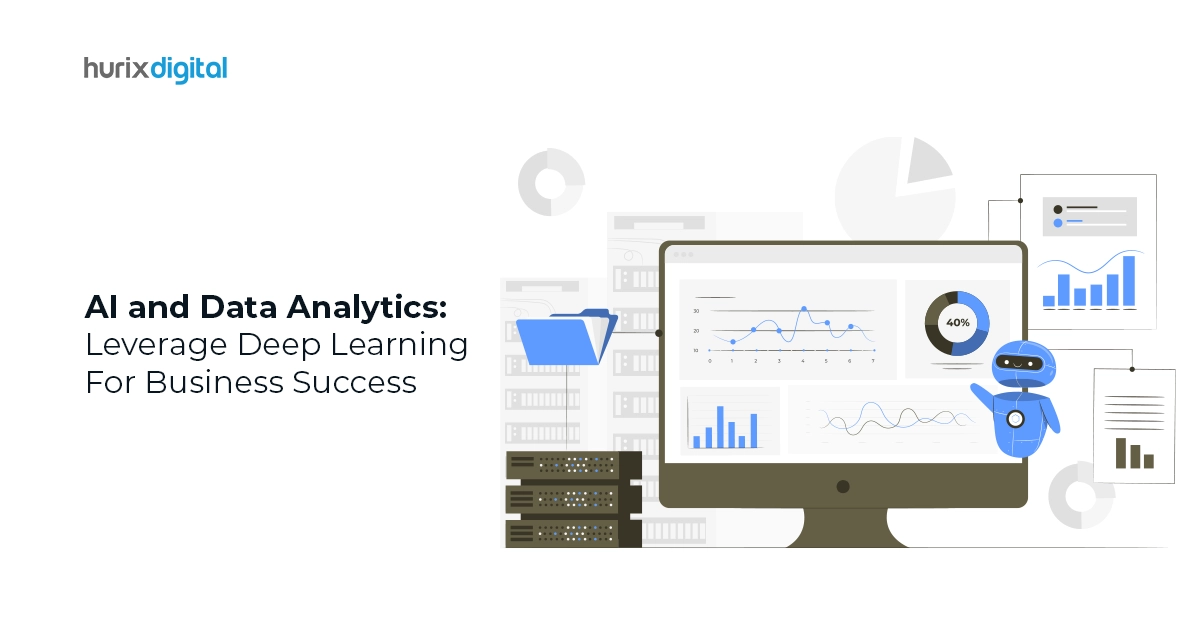
AI and Data Analytics: Leverage Deep Learning For Business Success
Artificial Intelligence (AI) has transformed the way businesses use technology to interact with their customers. By simulating the different human intelligence processes, machines are now able to perform tasks that require human intervention, such as decision-making, problem-solving, learning, and reasoning.
These technological developments have ushered in a new era in which systems powered by AI can gain actionable insights from large datasets, automate repetitive processes, and provide personalized experiences. The usage of AI is quite vast—from recommendation engines and customer service chatbots to autonomous vehicles.
By implementing AI, an organization will be able to take advantage of the growth opportunities, increased efficiency, and enhanced customer engagement that will result.
Table of Contents:
- What is Deep Learning?
- What are the Mechanics of Deep Learning?
- How Can Deep Learning Be Applied in Business?
- Conclusion
What is Deep Learning?
Deep Learning is a part of machine learning that uses multi-layered neural networks. These networks can simulate the complex decision-making powers of a human brain. Most of the AI we see today is powered by deep learning.
Technically speaking, a deep neural network (DNN) is a neural network with three or more layers. Most DNNs have many more layers. Large amounts of data are used to train DNNs to identify phenomena and classify them, determine patterns and relationships, calculate possibilities, and make predictions and decisions.
A neural network with a single layer can make approximate predictions and useful decisions, but the presence of additional layers can help optimize and refine those outcomes for greater accuracy.
Deep learning is often applied in applications and services that improve automation, performing physical and analytical tasks without requiring human intervention. Deep learning is used in products and services that we use every day, such as credit card fraud detection, voice-enabled TV remotes, and digital assistants.
It is also used in emerging technologies such as generative AI and self-driving cars. The deep learning chip market’s global revenue report shows its growing importance; it is forecasted to grow to more than $20 billion in 2027.
Also Read: Inclusive Learning to Address the Diverse Needs in Workforce Development
What are the Mechanics of Deep Learning?
Deep learning models are developed using multiple layers of interconnected neurons or nodes designed to transform and process input data into meaningful outputs. Using a process known as training, the parameters of these models are adjusted to minimize the difference between their actual outcomes and their predictions. Thus, they learn from the data provided and, with time, lead to performance enhancement.
Deep learning’s defining characteristic is the ability to automatically identify complex patterns in unstructured data, like text, images, audio, and video, without the help of explicit programming. In 2023, the clinical area of radiology accounted for 46% of the total AI and machine-learning integrated medical device market. It is expected to increase to 55% by 2025.
This kind of self-learning ability enables deep-learning models to take on complex tasks, such as anomaly detection, image recognition, language translation, and speech synthesis. These are done with a level of sophistication and accuracy that cannot be attained with conventional programming methods.
How Can Deep Learning Be Applied in Business?
Because of its adaptability and versatility, deep learning can be sorted into a variety of business applications, thereby changing how organizations can leverage data for strategic decision-making:
1. Predicting Market Trends
In the area of marketing, deep learning plays a crucial role in facilitating sentiment analysis, predictive analytics, and personalized customer recommendations. This empowers companies to customize their offerings based on individual preferences and predict market trends with immense precision.
Businesses can leverage deep learning algorithms to sift through a large collection of customer data. This allows them to identify preferences, behaviors, and nuanced patterns, which helps them deliver targeted marketing messages and customized recommendations.
2. Sentiment Analysis for Consumer Strategies
Deep learning offers scope for sentiment analysis, which enables organizations to determine consumer emotions and attitudes, leading to the development of communication strategies that are more resonant and empathetic.
Furthermore, marketers can equip themselves with predictive analytics capabilities to gain a foresight that will enable them to anticipate changes in consumer demand, refine campaign targeting, and optimize pricing strategies. These, in the long run, will help drive business growth and create deeper customer engagement.
3. Fraud Detection and Medical Image Analysis
For industries like healthcare and finance, deep learning is being used to promote transformations and innovations across a wide range of business applications – from drug discovery and disease diagnosis to predictive maintenance and fraud detection.
In the field of healthcare, deep learning algorithms are being used for medical imaging analysis. This can be used for the early detection of diseases and for developing personalized treatment plans. Within the finance sector, anomalous patterns can be identified within large transaction datasets, thereby helping in fraud detection.
4. Optimizing Maintenance in Manufacturing
Deep learning is being applied to the field of manufacturing by optimizing processes through predictive maintenance. This also helps minimize downtime and facilitate proactive equipment upkeep.
These advancements in the field of manufacturing highlight the long-lasting impact of deep learning and how it helps to drive meaningful efficiency and progress across multiple industries.
5. Price Optimization and Sensitivity
One of the most important decisions taken by an entrepreneur is determining how the pricing of the products and services being sold are made. Price sensitivity is something that entrepreneurs must be conscious of – a price change can lead to an influence on the customer’s decision-making abilities.
Traditionally, businesses used surveys to determine how willing customers are to pay at different price ranges. With the help of machine learning or deep learning, a dynamic smart pricing strategy can be implemented, which will ensure that the products and services are always being priced appropriately as per the target audience.
Also Read: The Impact of AI and Automation on Workforce Development Trends
Conclusion
As organizations continue to implement Artificial Intelligence and deep learning within their workflows, there is immense potential for growth across this trajectory. Ongoing developments in data availability, algorithms, and hardware have created an expectation that deep learning will expand its influence across diverse domains, thereby empowering businesses to chart new territories of productivity and efficiency.
Thanks to deep learning, the evolution in the field of AI is remolding the business landscape. It is going to usher in a huge transformation across organizations. Businesses will be able to use deep learning’s capabilities to drive innovation, automate complex actions, and derive actionable insights. They are setting up for a future defined by data-driven intelligence, arriving at real-world solutions through AI.
Using the Business Analysis Service available at Hurix Digital, you will be able to work with a team of skilled business analysts who will help produce a solid foundation for your product development journey. Get in touch with Hurix Digital to learn more.

Performance, Results, Growth, and Life-Long Learning define my professional life. I am passionate about making workplace learning planful, purposeful, and impactful. I take pride in partnering with clients and bringing them the best in learning design and creating solutions that address business challenges.





